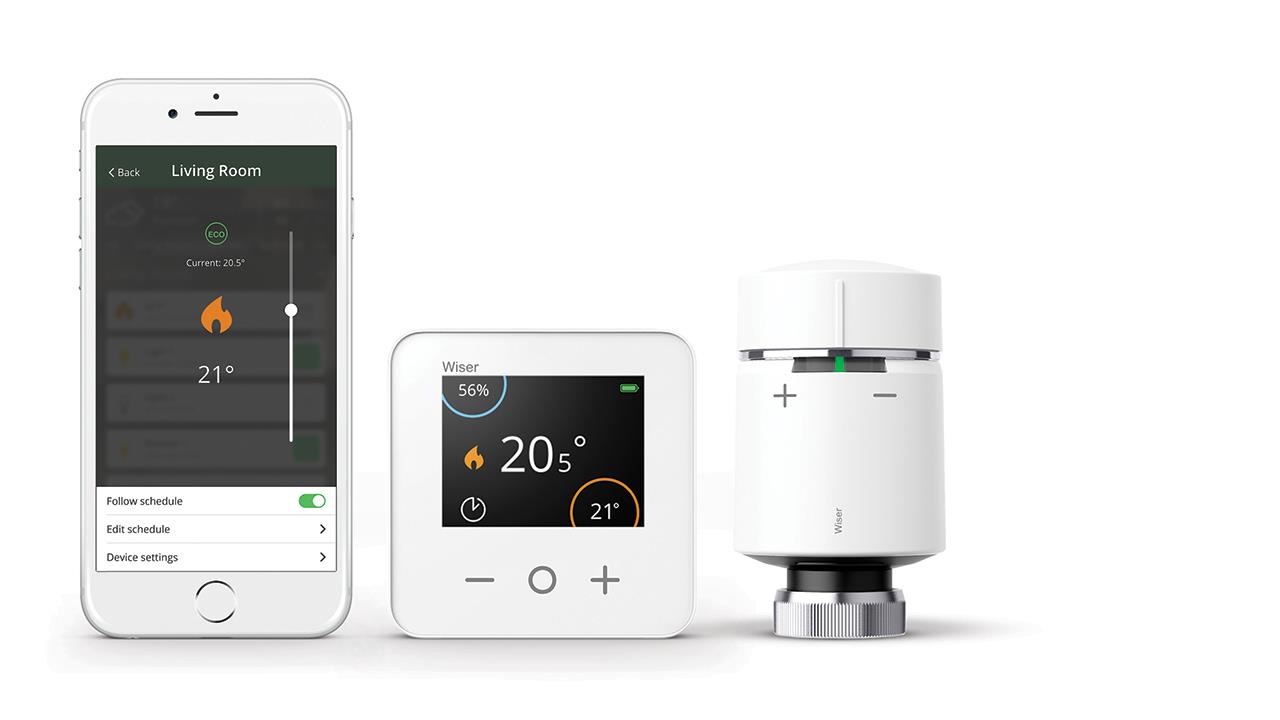

A growing number of homeowners are banking on smart controls, attracted by the intuitive features and cost-saving benefits that many offer.
But, for those who may not be sure whether the investment is worth it at this time, there are a number of features that heating engineers can highlight to help customers fully understand the benefits of the technology.
User convenience
One of the obvious benefits of smart control installers can point out to their customers is their ease of use; whether that means making it easier to set and manage heating schedules via an app, or having the ability to alter the temperature of their home via remote methods.
This ease of use can be further enhanced through the use of voice control systems, such as the Google Assistant and Amazon Alexa, that are increasingly popular with customers as means of managing appliances in their home. There are now a number of heating controls on the market that can converse seamlessly with these devices, and that installers can recommend.
Energy savings
By suggesting the installation of smart controls, installers will not only help improve their client’s comfort levels, they can also go a long way in helping them improve the energy efficiency of their home, and reduce their energy bills.
Research from the University of Salford recently found that replacing a standard room thermostat and programmer with a smart heating control contributed to 6% energy savings, while replacing a Class I room thermostat with a Class V or VI thermostat can save an additional 12%.
Some controls, such as Wiser, for example, can adapt heating schedules according to changing weather conditions, and offer an ‘away mode’ that allows users to turn off the heating without needing to amend its schedule. Respectively, these two smart modes can help reduce energy use by 7% and 24% when used.
By fitting a smart control with multi-zoning capabilities, installers can help their customer realise further savings. The University of Salford found that judicious use of zoning can reduced energy consumption by 19%.
Suitable for renewables
Government grants to support the installation of renewable heat sources are convincing more homeowners to replace their boiler with alternative heat sources, such as heat pumps.
For installers working on these types of projects, it is important to select the right heating control alongside the renewable heat source, to ensure the client achieves the same level of comfort as the gas heating system being replaced.
In order to best modulate the heat pump for optimum performance, a heating control should support the OpenTherm protocol – many smart heating controls do, and it enables customers to access insights about how their renewable heat source is performing.
Ready for the future
Home Energy Management Systems (HEMS), through a single user interface or app that allows users to control all connected devices within the home, are likely to play an increasing role in understanding the future energy demand of household applications.
As well as being able to improve energy efficiency of the home by learning the homeowner’s behaviours, HEMS could also help homeowners achieve additional savings on their energy bills.
Heating engineers are in a prime position to help future-proof the homes of today, and help their customers benefit in the meantime from a more efficient heating system.
To achieve this, and to grasp the huge upselling opportunity this represents, installers, as the point of contact between manufacturers and the public, need to keep scrupulously abreast of the benefits that smart controls can offer to their clients, and be ready to pass that information on. Be smart about it.
If you'd like to keep up-to-date with the latest developments in the heating and plumbing industry, why not subscribe to our weekly newsletters? Just click the button below and you can ensure all the latest industry news and new product information lands in your inbox every week.